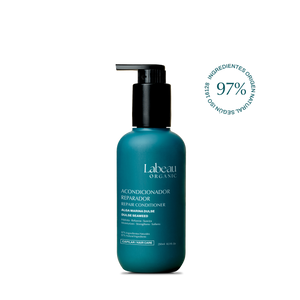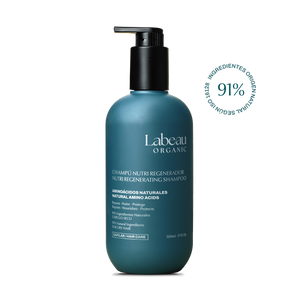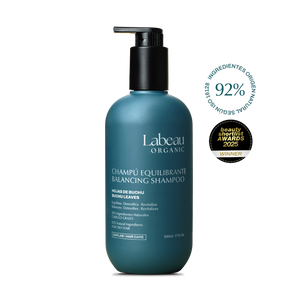How to Prevent Hair Aging?

From the age of 30, the first gray hairs tend to appear. Density, thickness, shine, volume... all of these are qualities of our hair that start to decrease with age. Hair aging, like skin aging, is a natural biological process of the body influenced by each person's lifestyle. Below, we explain in more detail this natural change in your hair and give you some advice.
What is hair aging?
Hair aging is a natural physiological alteration caused by age, which modifies the structure of our hair at both macro and microscopic levels and leads to hair loss over the years. This occurs due to the aging of the stem cells in the hair follicles.
However, you can slow down or even reverse aging by following these simple habits:
Establish a proper hair care routine
Daily good hair hygiene is essential to keep our scalp healthy, as well as using products suitable for each hair type. Opt for those that are gentle on the scalp, sulfate-free, and of high quality, which nourish and protect the hair. We recommend our range of hair care products that provide deep hydration and balance sebum for healthy and radiant hair.
Follow a balanced diet
Foods play a fundamental role in the growth and strength of the hair follicle, so an unbalanced diet will accelerate hair aging. To avoid this, follow a varied diet rich in fruits, vegetables, legumes, and cereals. Sufficient nutrient intake is necessary for the hair follicles to grow healthy and strong.
Include foods rich in tryptophan and fatty acids such as omega-3 to counteract hair weakness, hair loss, and lack of brightness in the hair. Take note of those that should never be missing from your diet:
- Bluefish (salmon, sardines, mackerel, etc.): their composition is based on high biological value proteins, monounsaturated and polyunsaturated fatty acids, omega-3 fatty acids, iodine, potassium, phosphorus, selenium, vitamins B6 and B12, thiamine, niacin, and vitamins D and E. Consuming them makes your hair grow more resistant and strong.
- Banana: Thanks to its vitamin E and tryptophan content, it repairs damage to the hair follicles, helping to promote good hair growth. Additionally, it contains zinc to add volume and prevent hair loss.
- Pineapple: Rich in vitamin C, it helps make the hair shinier and stronger. And since it contains antioxidants, it promotes the production of natural collagen for softer and more elastic hair.
- Kefir: Frizzy hair becomes more frequent over the years; to prevent it, kefir is a food rich in probiotics and proteins that prevent frizzy hair from becoming more frequent as the years go by. Additionally, your hair will look much brighter and stronger.
- Broccoli: It is one of the most nutrient-rich vegetables. It contains vitamins C, A, E, and K, as well as being rich in zinc and iron. It is ideal for counteracting iron deficiency during menopause and preventing hair aging, keeping it healthy at all times.
- Chickpeas: They are a source of vegetable proteins and contain nutrients such as iron and folic acid, essential for healthy and beautiful hair. They strengthen it and prevent its aging.
- Asparagus: Rich in zinc, an essential mineral for your hair to grow healthier and more beautiful.
- Avocado: It contains lutein, vitamins C, E, and B6, magnesium, and potassium. They provide intense hydration to the driest and most damaged hair, strengthen the roots, and promote hair regeneration.
- Nuts: Rich in zinc, such as pumpkin seeds, and iron, such as almonds, walnuts, or pistachios. They are an additional beneficial supplement for the growth of your hair.
On the other hand, processed foods such as sugars, alcohol, or saturated fats are great enemies of the hair follicle. Excess glucose alters hair growth, so it is better to keep them away and reduce their intake.
Protect your hair from the sun
Sunburn promotes hair aging, so hair protection is important. In summer, we tend to be more aware of this, but winter sun is very intense, especially in the mountains.
Therefore, we recommend the use of wool hats or hats, which besides keeping you warm, will help protect the scalp from sun exposure.
Reduce the use of heat tools
In winter, due to low temperatures, we tend to use hair dryers and straightening irons more often. However, we recommend applying a heat protectant and using the lowest temperature possible.
Follow these tips and your scalp will look much healthier and stronger so you can show off your hair this winter!



